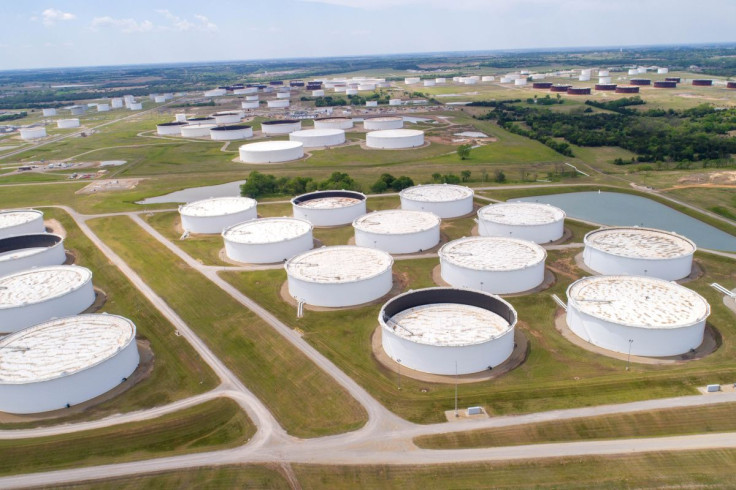Oil Prices Steady After Big Drop In U.S. Crude Stocks

Oil prices were little changed on Wednesday, paring gains after spiking earlier on data showing U.S. inventories dropped by nearly 5 million barrels and demand rose to an all-time high.
Brent crude futures gained 49 cents, or 0.5%, to $91.27 a barrel by 1:41 p.m. EST (1841 GMT). U.S. West Texas Intermediate crude fell 1 cent to $89.35 a barrel.
U.S. crude stocks fell by 4.8 million barrels last week, including a sharp drawdown at the key Cushing hub, as overall product supplied, a proxy for demand, hit a record 21.9 million barrels per day over the past four weeks, government data showed on Wednesday. [EIA/S]
The heavy activity and ramp-up in U.S. refinery processing suggest the market could be looking at tight supplies for coming months as well.
"This is (refinery) turnaround season which makes this report even more surprising," said Robert Yawger, director of energy futures at Mizuho. "This could be crude oil runs to refineries, refiners trying to restock inventories. We're exporting a large amount of crude as well."
The prospect of increased supply from Iran pressured the market this week, and the crude benchmarks slid about 2% on Tuesday as Washington resumed indirect talks with Iran to revive a nuclear deal.
An agreement could lift U.S. sanctions on Iranian oil and quickly add supply to the market, although a number of vital issues need to be resolved.
"If U.S.-Iran talks continue to progress, this (price) level should come under some pressure, while a collapse of negotiations could be the catalyst that drives the price towards triple-figure territory," said Craig Erlam, senior market analyst at OANDA.
Industry worries over political risks worldwide had ebbed a bit on Wednesday, several analysts said.
"The concerns about a further escalation of the Russia-Ukraine conflict appear to have eased somewhat following the latest diplomatic efforts, which is reducing the risk premium on the oil price," said Commerzbank commodities analyst Carsten Fritsch.
© Copyright Thomson Reuters {{Year}}. All rights reserved.





















